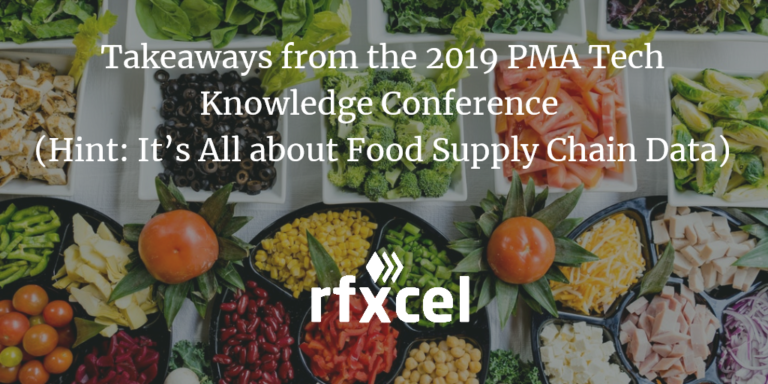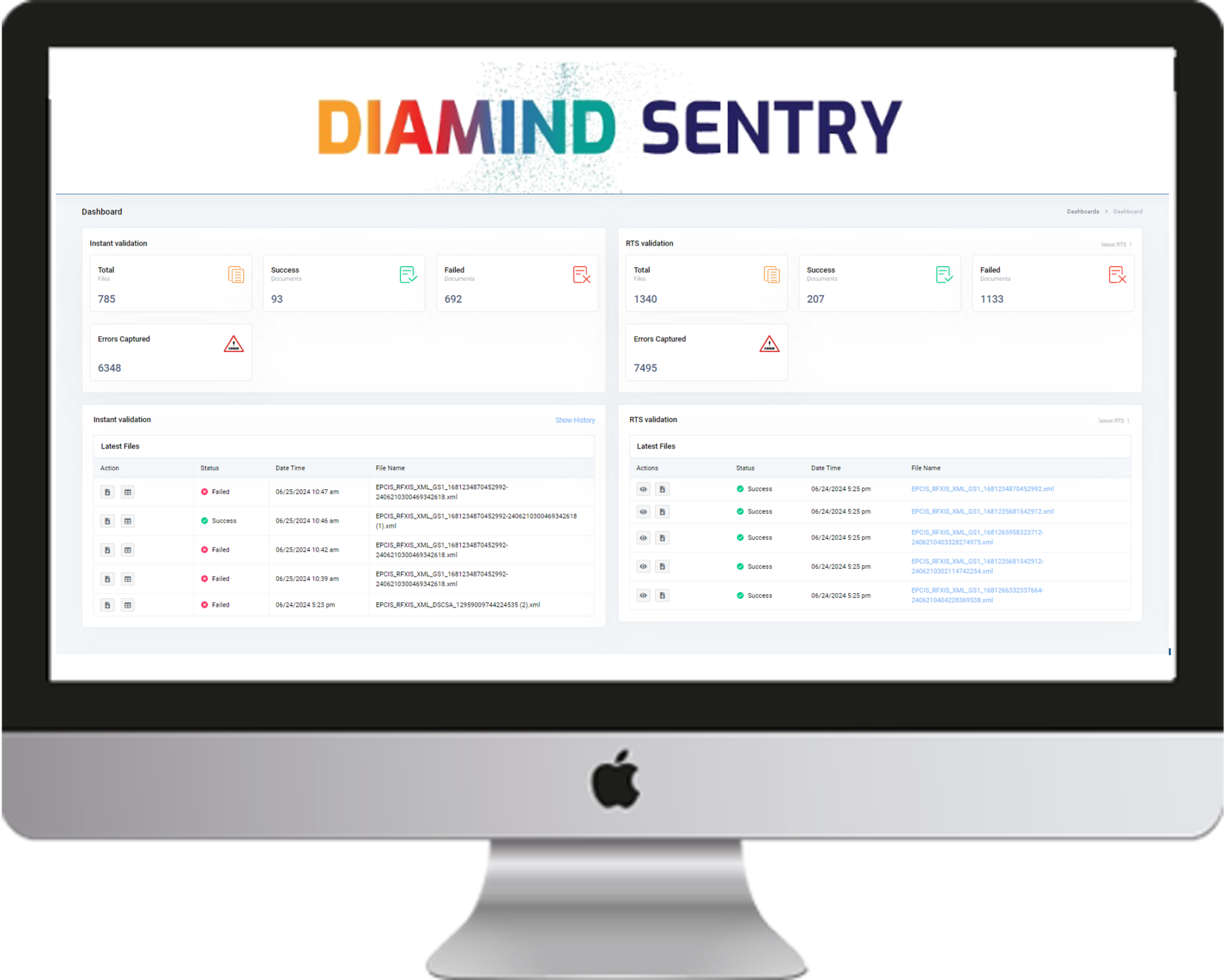The Produce Marketing Association (PMA) held its annual Tech Knowledge conference May 1–2 in Monterrey, California. At this showcase for cutting-edge ag tech, experts discussed food supply chain data, the future of food production, and industry challenges.
This edition of rfxcel’s food and beverage blog takes a quick look at what some of the speakers said at Tech Knowledge 2019.
Joshua Katz, Partner, Agriculture and Strategy Practice, McKinsey & Company
Joshua said emerging technologies were disrupting industries, bringing rapid, large-scale change. He presented 12 “transformative technologies” that can improve the sustainability, efficiency, and health impacts of food systems by 2030. Examples are alternative proteins and biological-based crop protection, whose value chains account for one-third of disrupters. Joshua said disrupters included mobile tech, big data analytics, and Internet of Things (IoT) for real-time supply chain transparency and traceability.
Kenneth Scott Zuckerberg, Senior Vice President and Strategist, Wells Fargo
Ken, who focuses on food/agriculture, sustainability, and technology, talked about the convergence of farming, tech, and finance. He said that as farmers and agribusinesses adopted data-intensive tools, their systems would produce food more efficiently and thoughtfully. There will also be less waste and environmental impact. He said producers should focus on the bottom line, not yields, because it would result in less waste and more efficiency.
Vonnie Estes, Vice President, Technology, PMA
Vonnie discussed what companies need to do and know about new technology. She said we needed solutions, not technology products. “The point of all this technology” is to improve profitability, performance, and simplicity for growers. Companies should use tech to develop durable, usable solutions. Tech should anticipate and meet consumers’ demands and preferences, including reducing food waste, improving labeling, and knowing “the story” of the food they buy. It should produce varied, nutrient-rich, and safe foods. Therefore, companies that want to survive and thrive must ask themselves two questions: What strategies do you have in place to innovate? What new tech do you think will disrupt your business?
Seana Day, Partner, Better Food Ventures and The Mixing Bowl
Seana talked about trends and investing in post-harvest, value-added food. She focused on “the messy middle” of the food supply chain. Investment here can really pay off, especially for reducing waste. Yearly food waste is staggering: 1.3 billion tons worth $1 trillion — and 80% of this occurs in the supply chain. She also discussed transparency. Calling it “the T word,” she said it was “fundamental to trust.” And though retailers are promising it and consumers want it, “Supply chain actors don’t always benefit from it.” This is an honest acknowledgement of one of the barriers to adoption. Seana agreed that food supply chain data and technology should do more than increase yields. In supply chains, tech can tackle food waste, monitor temperatures, manage inventory, and forecast with real-time, actionable data.
Ranveer Chandra Chief Scientist, Microsoft Azure Global
Ranveer talked about Microsoft’s efforts to significantly increase the world’s food production. The project he leads, FarmBeats, uses IoT technology such as low-cost sensors and the cloud to gather data from farms. He said that end-to-end food supply chain data, coupled with farmers’ knowledge and intuition, could increase productivity and reduce costs. Challenges include that many farms do not have internet connectivity or reliable sources of power. Furthermore, many farmers know little or nothing about technology. He said data-driven farming was the future of agriculture, and that FarmBeats is committed to making it the global norm.
Panel Discussion: Lessons Learned on Bringing New Tech to Food Supply Chains
Vonnie Estes moderated a wide-ranging discussion with iUNU CEO Adam Greenberg; Karol Aure-Flynn, vice president, sector analyst, and team lead at Wells Fargo’s Food and Agribusiness Industry Advisors; and Nolan Paul, partner and AgTech lead at Yamaha Motor Ventures.
The panel’s opinion of blockchain might have turned some heads. They were generally unimpressed, echoing what Subway’s Director of Supply Chain Traceability Lucelena Angarita told Forbes earlier this month: “Blockchain is not seen as a good fit at present for traceability.” Though Angarita was talking specifically about Subway, the world’s largest retail food chain, Adam, Karol, and Nolan suggested it was essentially true for the entire industry.
The panel’s overall message was clear: The food industry is transforming the way it produces food. Therefore, innovation and food supply chain data are key. From IoT and artificial intelligence to drones and bioengineering, technology will better predict outcomes, determine how farmers and producers are financed and insured, and enable a larger, safer, and more sustainable food supply chain.





